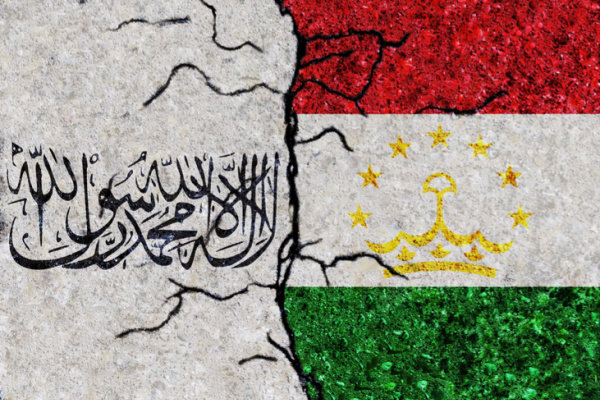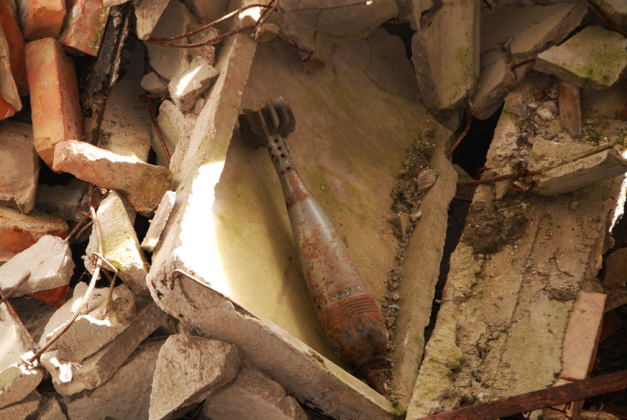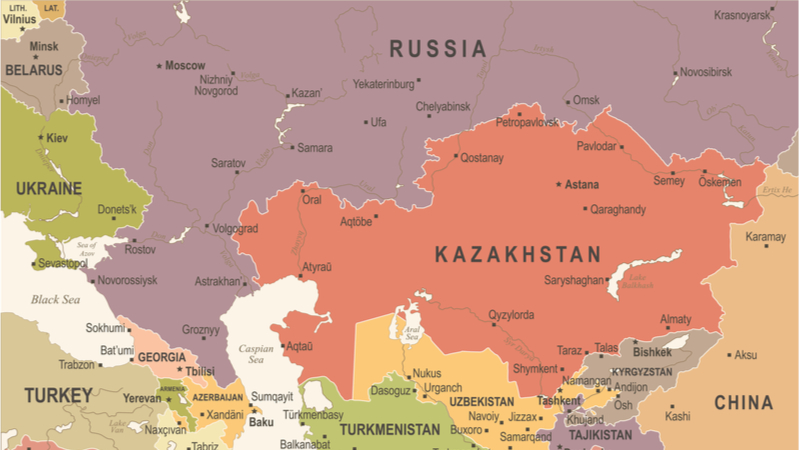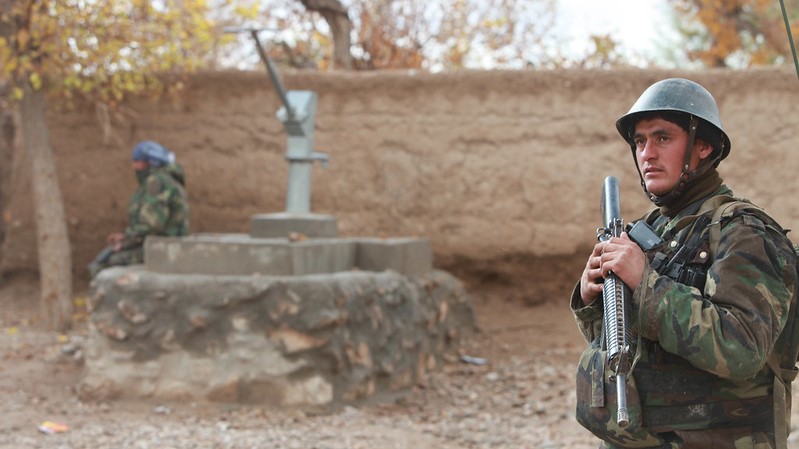Kyrgyzstan and Tajikistan Resolve Final Border Dispute: A Historic but Fragile Peace
By Aigerim Turgunbaeva
On March 31, the presidents of Kyrgyzstan, Tajikistan, and Uzbekistan met in the Tajik city of Khujand to officially announce that all territorial disputes between their countries had been resolved. While future tensions cannot be ruled out, the region’s leaders now seem to believe that cooperation brings more benefits than conflict. For the Ferghana Valley, that shared outlook may be the strongest hope for lasting peace.

BACKGROUND: On March 13, Kyrgyz President Sadyr Japarov and Tajik President Emomali Rahmon signed a landmark treaty in Bishkek that definitively demarcates the entire 1,000-kilometer border between the two countries. The signing ended decades of intermittent clashes and unresolved territorial disputes rooted in the Soviet-era administrative boundaries. The agreement has been heralded as a major achievement in Central Asia’s regional integration efforts. Yet, the circumstances under which the deal was brokered—notably the lack of transparency, absence of public debate, and suppression of dissent—raise important questions about governance, public trust, and the future of cross-border relations.
The border between Kyrgyzstan and Tajikistan has long been a source of friction, shaped by convoluted Soviet-era administrative divisions that ignored ethnic, geographic, and cultural realities. When both countries gained independence in 1991, these internal lines hardened into contested international borders. Enclaves, disputed villages, and overlapping claims turned the border zone—particularly Kyrgyzstan’s Batken region—into a hotbed of tension.As scholars have noted, Soviet planners in the 1920s and 1930s deliberately drew borders in ways that divided ethnic groups in order to weaken potential nationalist movements, creating enduring fault lines.
Violent clashes over land, roads, and water access occurred frequently, notably in 2014, 2021, and 2022. The 2022 conflict, which left more than 100 people dead and forced over 100,000 Kyrgyz citizens to flee their homes, was the deadliest to date. Civilian infrastructure, including schools and homes, was destroyed, exacerbating mistrust and trauma. Yet this tragedy also marked a turning point, prompting both governments to prioritize renewed negotiations. Talks resumed in late 2022 and intensified through 2023 and 2024, culminating in the March 2025 agreement.
Years of border-related violence left deep scars on both Kyrgyz and Tajik communities. Skirmishes often began with disputes over water access or road usage but escalated quickly due to the presence of military and paramilitary forces in civilian areas. Armed confrontations resulted in civilian casualties, displacement, and destruction of property. The 2021 and 2022 conflicts in particular revealed how unresolved borders and competing nationalist narratives can turn small incidents into full-scale battles.
These events created a humanitarian crisis, especially on the Kyrgyz side. Thousands were displaced multiple times, while cross-border trade and local economies ground to a halt. Despite multiple ceasefires and ad hoc agreements, durable peace remained elusive until the new treaty.
IMPLICATIONS: The treaty signed in Bishkek demarcates the full 972-kilometer boundary and resolves all outstanding territorial claims. While the full text of the agreement remains undisclosed, officials have confirmed that contentious zones like the Tajik exclave of Vorukh and surrounding Kyrgyz villages like Dostuk were key components of the deal. Reports suggest that land swaps and security guarantees played central roles in achieving consensus. Ceremonial gestures — including the reopening of checkpoints and reciprocal presidential visits — symbolized a new era of cooperation. Both governments framed the agreement as a diplomatic triumph.
The March 2025 agreement is notable not just for what it achieves, but how it came to be. After over three decades of deadlock, the treaty represents the first time that both governments have fully delineated and mutually accepted their shared border. While the specifics of the final map have not been made public, officials claim that all 972 kilometers have been agreed upon, including previously disputed enclaves and water-sharing arrangements.
Unlike past negotiations, which were often derailed by public outrage and nationalist pressures, the latest talks were conducted in near-total secrecy. Kyrgyz President Japarov pursued a top-down approach, sidelining parliamentary debate and civil society in favor of closed-door diplomacy with Dushanbe. Critics argue that this strategy undermined democratic oversight. At least two prominent Kyrgyz activists — including opposition figure Ravshan Jeenbekov — were detained for criticizing the deal and calling for public input on territorial concessions.
Despite these concerns, the breakthrough likely stemmed from a convergence of political incentives. For Japarov, resolving the border conflict bolsters his image as a strong and pragmatic leader, particularly after facing domestic backlash over economic stagnation and governance issues. For Rahmon, the agreement strengthens Tajikistan’s security and eases pressure on a regime that has faced increasing scrutiny over human rights abuses and political repression.
Moreover, international pressure and quiet diplomacy may have played a role. Both Russia and China—key players in the region—have interests in stabilizing Central Asia’s volatile borderlands. Beijing in particular has invested heavily in cross-border infrastructure and trade routes under its Belt and Road Initiative, and further conflict between Kyrgyzstan and Tajikistan risked disrupting its regional ambitions. Despite both countries being CSTO members, Russia has kept its distance from the Kyrgyz-Tajik conflict. After invading Ukraine, Moscow lost interest in regional mediation. In October 2022, President Putin admitted Russia had “no intention of playing a mediating role,” offering only Soviet-era maps to aid negotiations. The Kremlin’s reluctance stems from earlier setbacks. A 2020 offer to mediate was met with a protest from Tajikistan, and Moscow’s failure to resolve the Armenia-Azerbaijan conflict made it cautious about another potential diplomatic failure in its perceived sphere of influence. Russia’s limited role has highlighted Uzbekistan’s emergence as a key regional mediator. Since 2018, President Mirziyoyev has led efforts to revive regional dialogue through Central Asian summits without outside powers like Russia or China. By 2025, Tashkent had helped reopen communication between Rahmon and Japarov — who until recently would not even shake hands. Uzbekistan’s active diplomacy was especially visible in early 2025, when the prime ministers of all three countries met to discuss border issues.
The Kyrgyz-Tajik border accord could set a precedent for resolving similar disputes in Central Asia. Yet, the long-term success of the Kyrgyz-Tajik deal remains uncertain. Much depends on how the treaty is implemented on the ground. Villagers affected by the redrawn boundaries have voiced concerns about losing access to farmland, water sources, and ancestral homes. Without robust compensation mechanisms or inclusive dialogue, displaced or dissatisfied communities may become flashpoints for renewed tensions.
In Kyrgyzstan, the lack of transparency has already fueled public distrust. Some residents of Batken—the region most impacted by the deal—have protested what they see as the government’s unilateral ceding of territory without adequate consultation. Japarov’s administration has struggled to control the narrative, resorting to arrests and censorship to stifle dissent. If local grievances are ignored, the agreement could backfire, becoming a source of instability rather than peace.
Regionally, the agreement may also shift the balance of power. Tajikistan, a historically more authoritarian state, appears to have secured favorable terms in some contested areas, raising concerns in Kyrgyzstan about unequal negotiations.
Nonetheless, the border agreement represents a significant, if imperfect, step forward. It removes a major source of armed conflict, potentially allowing both governments to redirect resources toward economic development and infrastructure. It also provides a foundation for cross-border cooperation on water management, trade, and regional security, if both sides are willing to engage beyond security optics.
Whether this peace holds will depend not only on maps and treaties, but on how governments engage their citizens in building a shared future across once-divisive lines.
AUTHOR’S BIO: Aigerim Turgunbaeva is a journalist and researcher focusing on Central Asia. Aigerim writes about press freedom, human rights, and politics in the former Soviet space, and delves into China’s interests in the region for publications like The Diplomat, The Guardian, Reuters, Eurasianet.
Tajikistan Faces Threat from Tajik Taliban
By Sudha Ramachandran
March 27, 2023
In July 2022, reports emerged of a “new” militant outfit in northern Afghanistan. A Taliban-affiliated group, the Tehrik-e-Taliban Tajikistan is reportedly in charge of the security of five districts in Afghanistan’s Badakhshan province. It has in its crosshairs the anti-Taliban resistance based in Tajikistan, the secular Tajik government and the Islamic State-Khorasan Province. So how “new” is the TTT? And what are the implications of its rising presence and profile in Afghanistan’s border districts for the region?

ISKP Attacks in Uzbekistan and Tajikistan
By Sudha Ramachandran
August 31, 2022
Since April this year, the Islamic State Khorasan Province (ISKP), the Afghan affiliate of the terrorist organization known as the Islamic State of Iraq and Syria (ISIS), has carried out rocket attacks in Uzbekistan and Tajikistan from its bases in northern Afghanistan. The attacks are significant. This is the first time that the jihadist group is targeting countries in Central Asia. They signal the ISKP’s expanding geographic presence inside Afghanistan as well as its growing ambitions in Afghanistan and Central Asia. Western countries that are concerned about terrorism emanating from Afghanistan should take note of the implications of the recent attacks.

Russia's War in Ukraine: Implications for Central Asia
By Johan Engvall
March 14, 2022
Russia’s invasion of Ukraine and the West’s economic response to it has put Central Asia in a precarious position. As part of what Moscow perceives as its sphere of interest, the repercussions of Putin’s war are bound to affect the Central Asian countries particularly hard. While anything but static, the nature of the Russia-Central Asia relationship still enables Moscow to retain a strong influence in the region. Russia remains the dominant security actor in Central Asia, even more so following the U.S. withdrawal from Afghanistan. Their economies remain closely interlinked with Russia, and at the political level, a distinct type of post-Soviet authoritarian leadership model with roots in the Soviet system facilitates political dialogue. Western disengagement from the region has left them more vulnerable, but the unpredictable consequences of Russia’s military adventurism might force them to realign their external relations.

U.S. out, Taliban in: Central Asia Facing New Challenges from Afghanistan
By Farkhod Tolipov
August 20, 2021, the CACI Analyst
In April 2021, Washington began the long-awaited withdrawal of its military forces from Afghanistan, a process that is expected to be completed by September this year. This is being done in the wake of an agreement between the U.S. and the Taliban as a condition for reaching peace in Afghanistan. However, the “victorious” Taliban began a sudden offensive in some northern provinces bordering Uzbekistan and Tajikistan. The Afghan military surprisingly retreated instead of resisting the insurgents. Some even crossed the Afghan border with Uzbekistan and Tajikistan. As the Taliban have swiftly moved to take control of most Afghanistan, including Kabul, Central Asia is facing strategic uncertainty.




